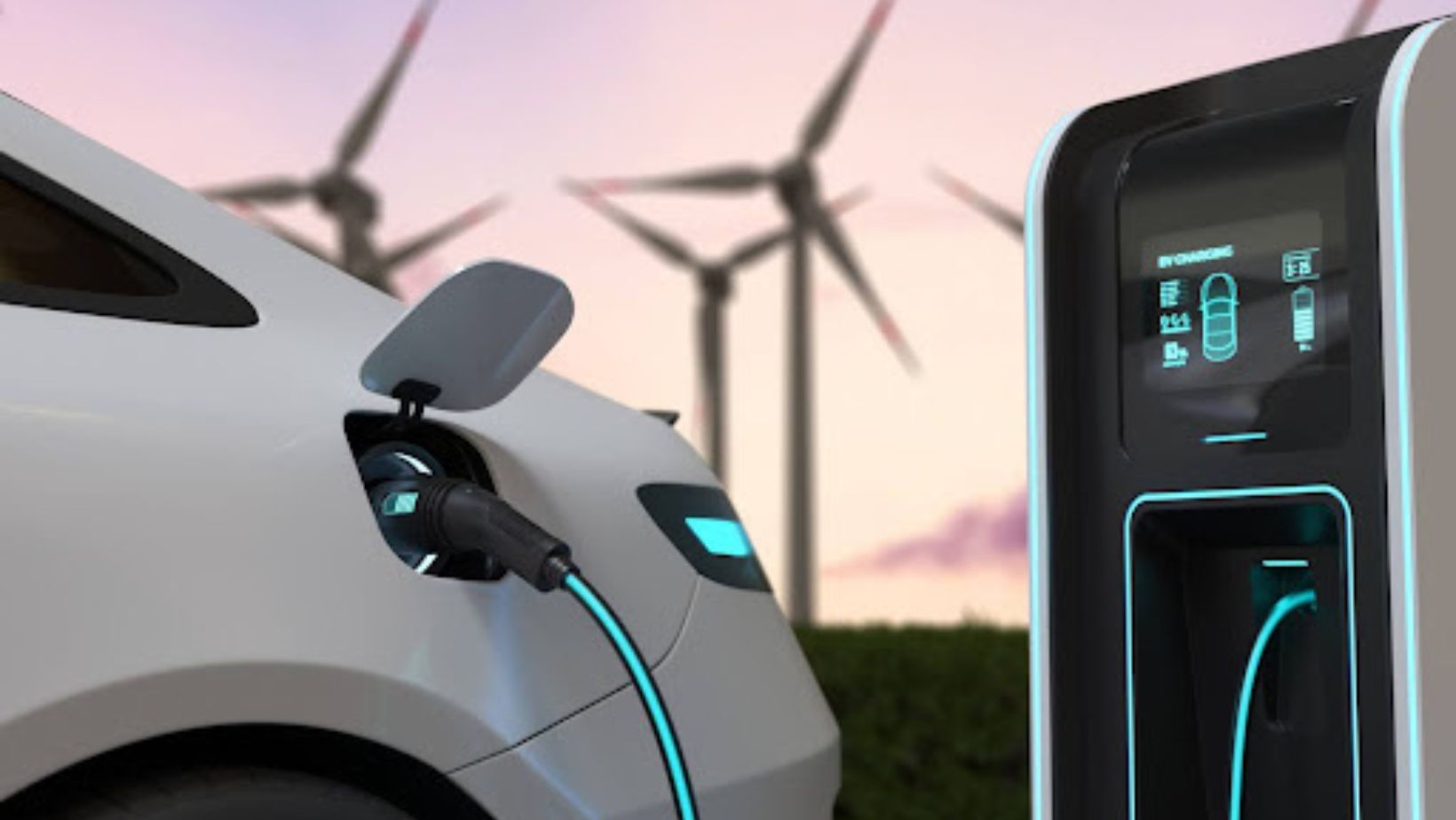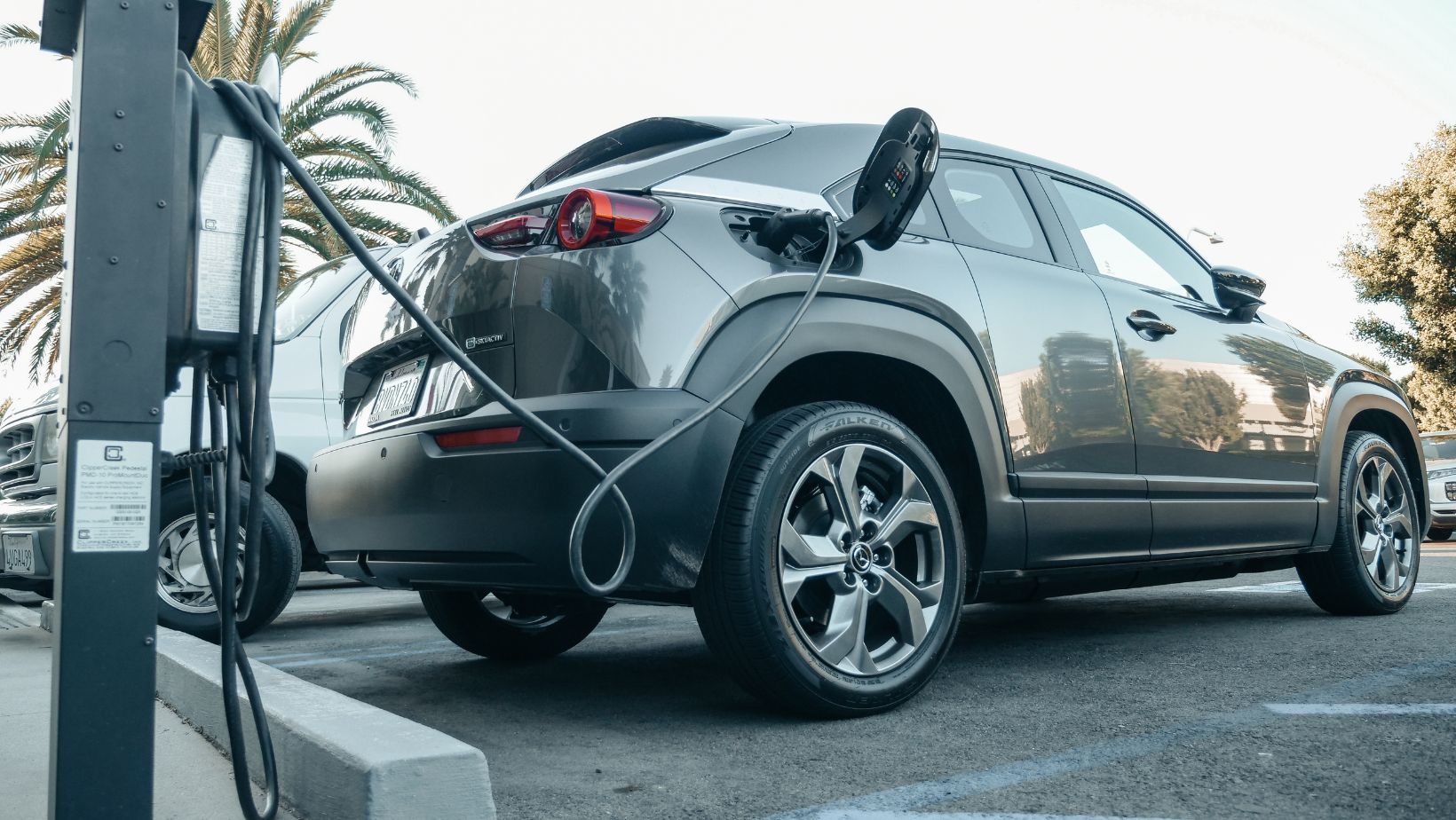
Once perceived as a niche segment with limited appeal, electric cars have rapidly evolved into a cornerstone of modern transportation, driven by a global push towards sustainability and technological innovation. This is not just a fleeting trend but a pivotal move towards reducing carbon emissions and embracing cleaner, renewable energy sources.
With this change comes a multitude of investment opportunities, not only in electric vehicles (EVs) themselves but also in the crucial infrastructure that supports them: the charging stations. As governments and consumers increasingly prioritise environmental responsibility, the demand for EVs is poised to grow exponentially. This article delves into the fiscal prospects of the green car sector, unravelling the potential rewards and challenges that lie within this rapidly expanding market.
The Rise of Electric Cars
The evolution of electric cars from mere curiosities to mainstream vehicles is a testament to the rapid advancement of technology and a growing collective environmental consciousness. This shift aligns seamlessly with the increasing focus on sustainability outlined in the introduction, where the global impetus is clearly towards reducing carbon footprints and embracing cleaner energy.
Historically, electric cars were seen as impractical due to limitations in battery technology and a lack of charging infrastructure. However, the last decade has witnessed monumental changes. Technological breakthroughs, particularly in lithium-ion batteries, have dramatically increased the range and efficiency of EVs, making them a viable option for the average consumer.
The market trends reflect this technological revolution. Sales of EVs have been climbing steadily, with significant spikes in regions with supportive environmental policies and incentives. Major automakers like Tesla have led the charge, but traditional automotive giants like Nissan and General Motors are not far behind, each investing heavily in developing their electric fleets. This competitive environment fosters innovation and further subsidising, propelling the industry forward.
Looking to the future, projections for the electric car market are overwhelmingly positive. Analysts predict a continuing surge in EV adoption, spurred by further technological advancements, decreasing costs, and increasing environmental awareness among consumers. This trend is not just a boon for the automotive industry but represents a lucrative avenue for investors.
Investment in Electric Car Manufacturing
Investing in electric car manufacturing presents a unique blend of opportunities and challenges. The potential for growth in this sector is enormous as the global shift towards EVs gains momentum. Investors have the chance to be part of a transformative movement, supporting companies that are innovating in battery technology, electric drivetrains, and autonomous driving features.
However, buying into EV manufacturers is not without its risks. The electric car industry is highly competitive, and the rapid pace of technological development means that today’s leading technology could become obsolete tomorrow. Companies must continuously innovate to stay ahead, requiring substantial and ongoing investment. Additionally, the market’s volatility can be influenced by factors like government policies, economic cycles, and global supply chain dynamics.
Success stories in EV manufacturing investments abound. Tesla is the most notable example, having revolutionised the electric vehicle market after going all-in to the industry early on, enabling it to reward its supporters handsomely. But there are other players, too, like China’s NIO and Europe’s Volkswagen. These companies have shown that with the right strategy, investing in EVs can be highly profitable.
The Charging Infrastructure Landscape
But the opportunity isn’t just limited to the cars themselves. The charging infrastructure for EVs is an equally vital and often overlooked component of this burgeoning market. As the number of electric vehicles on the road grows, the demand for an extensive and efficient charging network becomes increasingly critical, opening up a wealth of investment opportunities.
Investment opportunities are getting bigger with the need for more commercial electric car charging stations, which make it easier for people to use electric cars because they can charge their cars on long trips, not just at home. Putting money into making more of these stations available helps keep up with the growing number of electric vehicles and supports cleaner ways to travel. This move is also good for the environment and the future of transportation.

The current state of infrastructure varies greatly by region. In some areas, particularly in cities and developed countries, there’s a robust network of public charging stations. However, in many parts of the world, the infrastructure is still in its nascent stages. This disparity presents a significant opportunity for investors. Developing a comprehensive charging network is crucial to support the growing fleet of EVs and to encourage further adoption by alleviating range anxiety among consumers.
Investing in charging involves several facets. There are the physical locations — the stations themselves. But there’s also the technological aspect, such as the development of faster charging capabilities and software systems for station management and user interface.
Furthermore, there’s a growing interest in integrating smart technologies into infrastructures, like real-time data analytics and grid optimisation, which can further enhance the efficiency and appeal of powering stations. These help enable the use of EV charging apps, such as Bonnet, which make it easier for drivers to locate ideal locations where they can power their vehicles.
The challenges in developing a charging infrastructure are not insignificant. They include dealing with the high initial costs, navigating varying regional regulations and standards, and the need for ongoing maintenance and upgrades. However, the potential returns are promising. The global market is expected to grow exponentially in the coming years, driven by the increasing adoption of electric vehicles.
Integrating Renewable Energy With EV Charging
The role of renewable energy in powering EV charging stations is becoming increasingly important. Solar power, in particular, has emerged as a top choice for green energy integration. They are exceptionally popular because they offer a double environmental benefit: they reduce reliance on fossil fuels and decrease greenhouse gas emissions both from the energy sector and transportation.

Investment opportunities in this area are diverse and promising. For example, you could buy into companies that develop solar panels specifically designed for chargers, or you could invest in smart grid technology, which enables the efficient distribution and use of renewable energy in EV charging. The possibilities are endless.
Conclusion
In exploring the investment opportunities in electric cars and charging infrastructure, it’s clear that this sector represents much more than a promising market — it’s a pivotal element in our journey towards a sustainable future. Investments in the EV industry not only offer substantial financial returns but also play a crucial role in shaping a greener, cleaner world.















